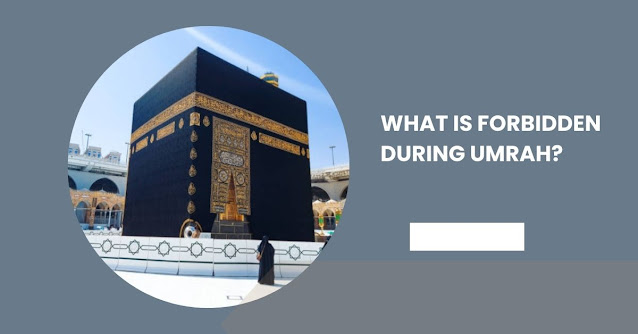What is forbidden during Umrah?
Every year, millions of Muslims go to Mecca for the Umrah, a sacred pilgrimage. Worship and rituals are part of this deep spiritual journey. Even though the pilgrimage to Mecca is a fulfilling and transformative experience, pilgrims are nonetheless required to adhere to certain norms and restrictions.
To
maintain the sacredness of the journey, it is essential to understand what is
forbidden during the Umrah. Before booking trustworthy Umrah travel specialists, you must learn about the basic rules of Umrah. This article aims to highlight
the significance of upholding the pilgrimage's holy nature while also making
explicit the actions and behaviors that were prohibited during the Umrah.
Forbidden Acts during Umrah:
. Engaging in Quarrels and Disputes
. Engaging in Vain Talk
. Wearing Perfume or Scented Products
. Engaging in Sexual Activities
. Hunting
. Cutting Hair or Nails
. Engaging in Business Transactions
. Engaging in Acts of Violence or
Aggression
Engaging in Quarrels and Disputes:
Umrah is a
sacred pilgrimage dedicated to contemplation and prayer. On this journey,
participants must fully immerse themselves in a serene setting that encourages
spiritual growth. It is definitely forbidden to pick fights, argue, or act
aggressively in any other way. To maintain their spiritual focus, pilgrims are
advised to cultivate a sense of peace, acknowledge the sacredness of their
journey, and steer clear of conflict.
Engaging in Vain Talk:
Upholding
the sanctity of the journey by participant behavior is one of the most
significant parts of Umrah. Upholding a code of conduct that honours the
solemnity of the journey is mandatory for pilgrims. This entails avoiding
conflicts and debates that might take away from the group's spiritual growth.
Pilgrims who purposefully steer clear of conflict and maintain a peaceful
environment strengthen their spiritual bond and add to the trip's sacredness.
Wearing Perfume or Scented Products:
Pilgrims
are not allowed to use perfume or other fragrant items while they are in the
Ihram, a sacred state that denotes their devotion to the journey. The basic,
unstitched white clothing that pilgrims must wear is a requirement to foster
equality and humility among them.
Cutting Hair or Nails:
Pilgrims
must wait to trim or shave their hair until after completing certain procedures
during the Umrah. This represents humility and surrender to Allah's will. Men
must shave their heads or clip their hair after performing the Tawaf
(circumambulation) and Sa'i (walking between Safa and Marwah). Women must
remove a tiny bit of their hair.
Engaging in Business Transactions:
Since
Umrah is a time of spiritual thought and devotion, it is necessary to
temporarily abstain from worldly occupations, including commerce. Mecca's holy
quarters offer a special setting for pilgrims to engage in prayer and
meditation, strengthening their relationship with God. Buying and selling
products or services is not advised at this period since it takes focus away
from the main reason for the journey.
The spiritual core of the Umrah urges pilgrims
to set aside worldly worries so they can concentrate on the prayers, rituals,
and introspection that are essential to the pilgrimage. To strengthen the
significance of their journey and the purity of their relationship with Allah,
pilgrims might establish a holy space for spiritual growth by refraining from
engaging in commercial activities.
Performing Aggressive or violent acts:
Violent
conduct, arguments, and physical altercations are not permitted during Umrah.
Along the way, pilgrims are supposed to behave calmly and courteously.
Disagreements not only compromise the integrity of the trip but also sabotage
the concord and solidarity that are supposed to exist among the Muslim
community during this hallowed period.



.jpg)
Comments
Post a Comment